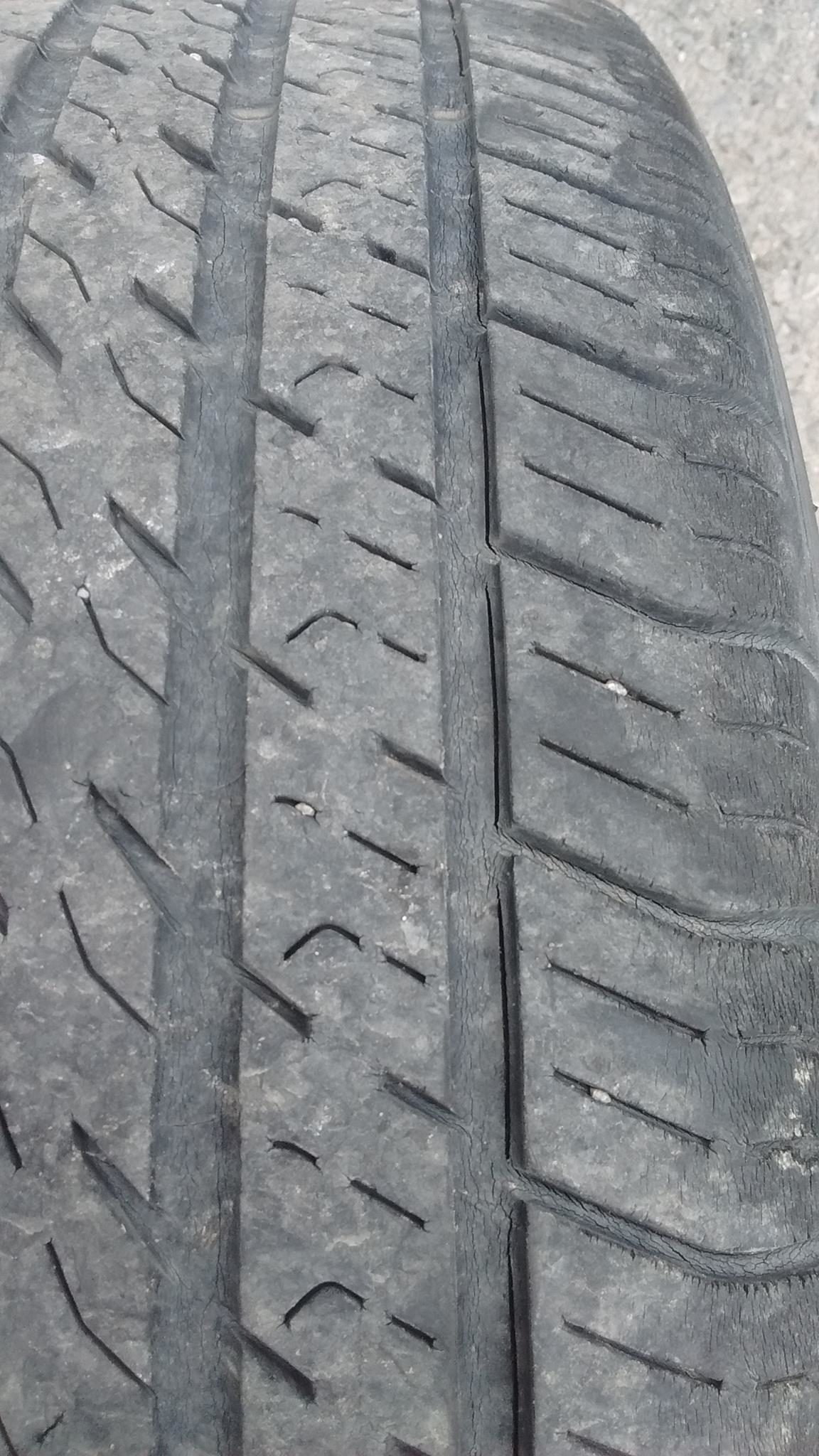
This is why tires that are stored in a garage can still get tire cracks: electric motors can create ozone that degrades the rubber in tires. This type of tire sidewall cracking is sometimes called ozone cracking or weathering. As a tire continues to degrade and dry out, dry rot can occur. Chemicals can also cause cracked tires. Tire safety is extremely important. This video shows how to check for dry rot even if the tire appears to have plenty of useable tread left. Put another way, cracking of rubber is to be expected as the tire gets old. But the real problem is not what you can see on the outside. It’s the rubber on the inside that’s holding the tire together. Over the past 5 years Michelin has had issues with cracking. We've never received any explanation from them as to a cause, and we, as a Michelin dealer, have replaced quite a few tires under warranty because of it. Personally, I would contact Michelin North America and explain your case to them. We have sidewall cracking on all outside mounted tires (Michlin tires 255/80R22.5 XRV (DOT B6H6 AK3X 3805)). Crack depths average approx. 5/64'(1.9844mm) determined by inserting the corner of a paper strip into cracks, scribing the.

Michelin Tires Cracking On Sidewall
Tires take a serious beating—constant 'stretching' as they roll along the road, exposure to harsh chemicals (gasoline, oil, acid, etc.), UV rays and heat. That rubber is suffering so that you can travel! Almost all tires will begin to exhibit small cracks in the sidewall after a short period of time. Is it time to worry?
The outer layer of rubber on the sidewall is simply a sealing layer to keep the elements away from the inner (structural) part of the tire—in other words, those unsightly cracks are purely cosmetic. If your tires start to get really deep cracks after 3-5 years, you might consider replacing them for peace of mind. If you haven't worn out a set of tires in 5-8 years, it's worth replacing them for safety's sake, even if there is still good tread left on the tires.
It is important to note that recreational vehicles—like your VW camper, maybe?—are more subject to tire cracking than everyday drivers. Long periods of 'sitting' causes the rubber to dry out, and when you take your camper out for a drive, the rubber 'splits' as it gets worked on the road. Again, this is nothing to worry about unless the cracks are exceptionally deep.
The bottom line is this: In almost every case we've seen, you do not need to worry—you just need to get out and camp!